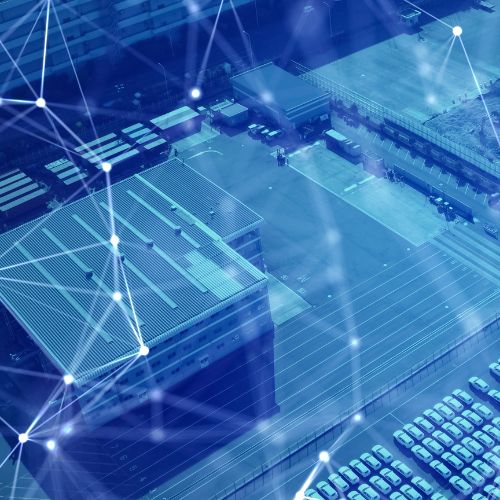How blockchain technology revolutionises supply chain management
What is blockchain technology?
In its most simple terms, a blockchain is an electronic database that stores data in ‘blocks’ that are chained together by code. It is a distributed digital ledger known as the single source of truth – once something is added to the blockchain it is immutable and cannot be reversed. Importantly, there are no third parties involved in blockchain, making the process more honest, efficient and safer.
All information on the blockchain is decentralised on multiple devices around the world. These devices communicate with one another to disseminate information without the need for any one group or organisation overseeing this spread of information. Decentralisation means the blockchain is at far less risk of being hacked or held to ransom. Unlike traditional servers, there is no single point of failure in blockchain tech.
How does blockchain technology help with supply chains?
Using blockchain for supply chain management provides clarity at every step by improving traceability of items in the chain. For freight forwarding companies, this means being able to track where goods are in almost in real time as well as place of origin and store all of the data on the blockchain. It also reduces time and money spent on administration. Improving efficiency in the global supply chain has positive benefits for everyone, from producers to freight forwarding companies and end consumers. Another benefit of blockchain in supply chain management is the transparency of transactions. Every transaction that has ever taken place is recorded and available for anyone to see, meaning less room for fraud and theft. Sites such as blockchain.com/explorer show blockchain transactions in real time.
Marco Viglietta, Managing Director of Avion International Australia, said new technologies such as blockchain would help the global freight forwarding industry to deliver more efficient services. “Being able to track goods and ships instantly, at any time of the day or night, and feed that information back to customers is a game changer,” Mr Viglietta said. “Having the information stored on the blockchain, where it can’t be altered, means there is one source of truth. And if there’s anything clients and customers want in an economically rocky time, it is honesty.”
How smart contracts help supply chains
Another highlight of moving to the blockchain is the use of smart contracts. Smart contracts are computer protocols that can handle autonomous fulfilment of a contract without a third party. These contracts take place between two or more parties, be they human or computers. Smart contracts are ideal for dealing with organisations in different time zones, as they can work without human involvement.
Smart contracts become ‘live’ when certain criteria is met. For instance, a logistics manager could create a smart contract with a supplier to send items, with payment to be triggered when the task is completed.
As they are automated, smart contracts provide cost savings and efficiencies for supply chain organisations, as well as providing clear evidence of all actions having taken place.
For freight forwarding companies that ship temperature-controlled items such food and medicine, smart contracts can be programmed to ensure items are shipped at the correct temperature. Smart contracts can track and share the place of origin, temperature of the packaging and ship itself, allowing instant and honest information to be shared between parties.
Mr Viglietta said smart contracts would work hand-in-hand with the comprehensive supply chain tracking service already provided by Avion. “Smart contracts allow us to work smarter and save so much time on administration tasks. Being a global business, with offices and clients all over the world, we need to be able to respond when our clients need us, regardless of the time zone differences. Any tools that allow automation for logistics tasks are surely beneficial.”
Who is using blockchain in supply chain management?
Some of the biggest names in global logistics are seeing benefits from using blockchain to run their supply chains. According to builtin.com, a website specialising in tech information, these companies are integrating and using blockchain:
- Accenture
- Microsoft
- IBM
- Blockchain in Transport Alliance (BiTA).
Elsewhere, the United Nations Food Program used blockchain to ensure transparency and proof of funds distribution when feeding 10,000 Syrian refugees, and Walmart has used blockchain technology to track foodstuff being shipped across China in almost real-time.
While it is early days for blockchain technology, it is almost inevitable that it will soon become the gold standard for improving supply chain management. The improvements in efficiency, speed and transparency will benefit manufacturers, freight forwarding companies, small businesses and consumers, making supply management more technologically advanced than ever.
Recent posts
Sign up and stay update
Follow us
